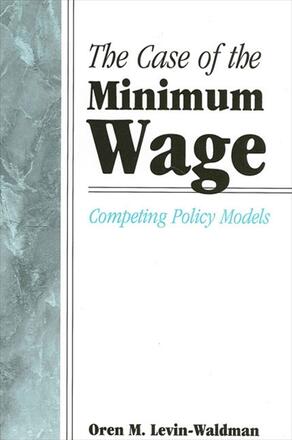
The Case of the Minimum Wage
Competing Policy Models
Alternative formats available from:
Places contemporary minimum wage debates in historical context, stressing the importance of political as opposed to economic variables.
Description
This book traces the historical evolution of minimum-wage policy and explains how models are used (and misused) by different interests to achieve their particular aims. Minimum-wage policy was initially legitimated as a broader labor-market policy aimed at achieving greater productivity and labor-market stability. As organized labor has declined as a political force in the last twenty years, the nature of the debate has metamorphized into a narrowly focused and often highly technical discussion concerned with specific effects of given specific increases in the minimum wage, such as either relieving poverty or the so-called adverse effects on youth unemployment. This change has coincided with the greatest stagnation of the minimum wage.
Oren M. Levin-Waldman is the author of Reconceiving Liberalism: Dilemmas of Contemporary Liberal Public Policy and Plant Closure, Regulation, and Liberalism: The Limits to Liberal Public Philosophy.
Reviews
"The book effectively blends economics, political science, legal studies, history, and policy studies. I found it absorbing." — Deborah M. Figart, coauthor of Contesting the Market: Pay Equity and the Politics of Economic Restructuring
"The balancing of economic perspectives with political perspectives is excellent." — J. Edward Kellough, University of Georgia